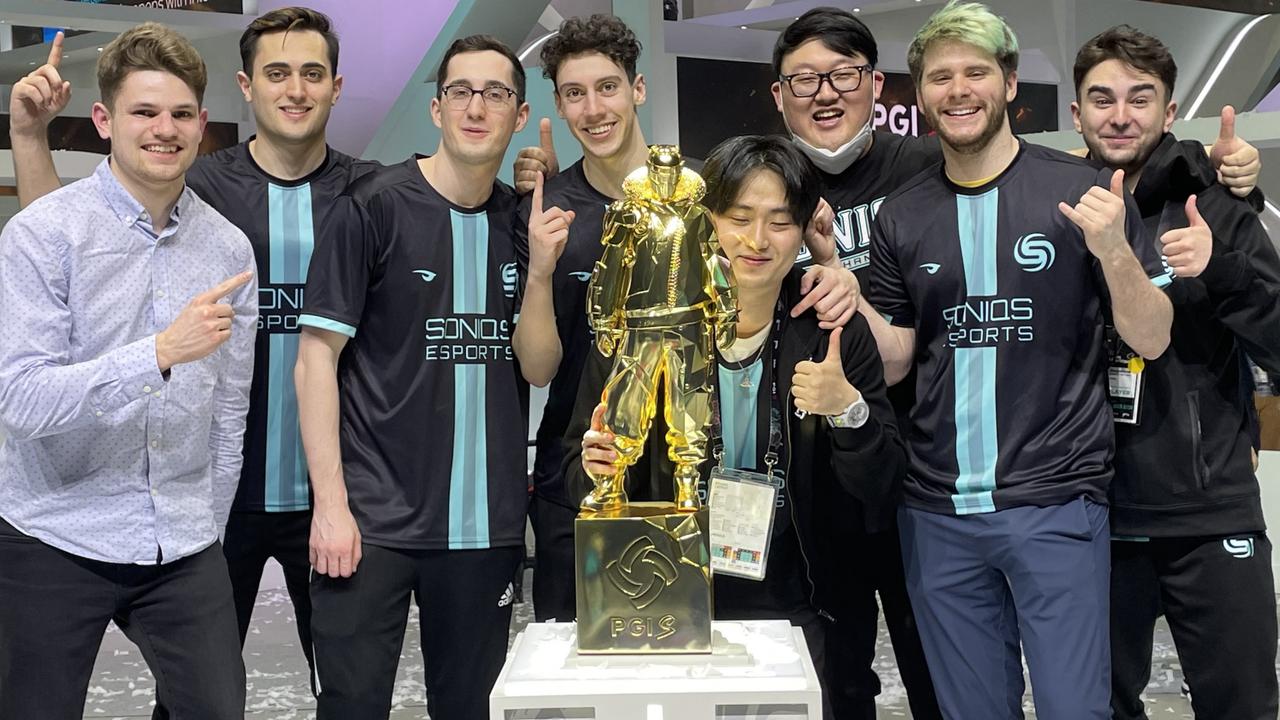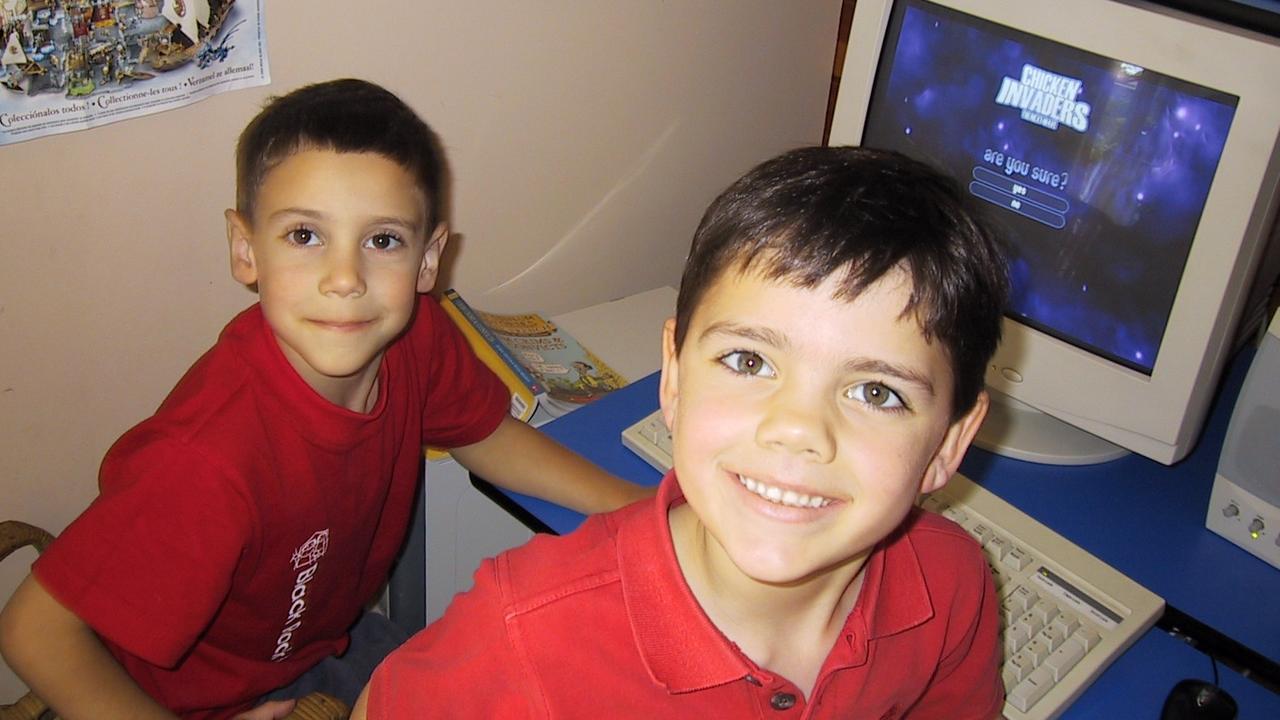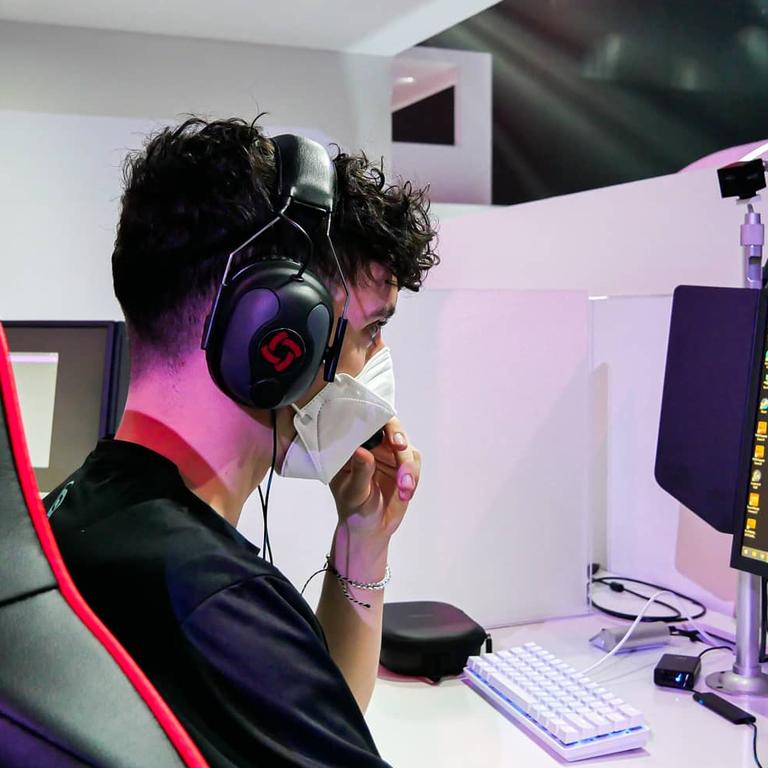‘Feast or famine’: Aussie pro-gamer winning millions
From making only $1 an hour to winning $7 million in an international competition – this Aussie pro-gamer is proving that online games can be a viable career.
Australia’s top pro-gamer has made millions by turning his love for gaming into a career similar to becoming a pro-athlete.
Speaking on news.com.au podcast I’ve Got News For You, James Giezen described his rise to become one of Australia’s top three pro-gamers – competing in international tournaments worth millions of dollars.

Specialising in Player Unknown Battleground (PUBG) games, Mr Giezen has spent the last few years competing as part of an elite team of gamers called Soniq within the realm of e-sports.
E-sport career making millions
And like any true sport – PUBG gaming has both local and global tournaments for players to compete and win big.
“We have two majors and two minor tournaments a year,” Mr Giezen explained.
“And then depending on how you perform in those, you’ll get invited to the PUBG World Championship.”
Introducing #PNC2022 Team Australia! 🇦🇺
— PUBG Esports (@PUBGEsports) May 4, 2022
What do you think about this squad? 🔥#PNC2022#Team_Australia
🆠PUBG Nations Cup 2022 ðŸ†
🇹🇠Bangkok, Thailand
ðŸ—“ï¸ 2022.06.16 - 2022.06.19 pic.twitter.com/AnYQUdJTEf
Despite the pandemic, PUBG tournaments went ahead which saw team Soniq compete in the 2021 World Championship for a prize pool winning of $7 million.
When they won, the four members including Mr Giezen took home $1.3 million each.
“That’s probably goes down to the books as the greatest moment of my life,” he said.
The remainder of the prize winnings was split between their “coach” and a 20 per cent cut given to the hosting organisation.
Mr Giezen has made hundreds of thousands of dollars by competing in e-sports tournaments by spending every weekday practising for hours with his team, developing his speed, agility and reaction time.
And while he has managed to earn and save more income than most people working traditional jobs, what makes his dedication to gaming a fully-fledged career are the extra hours he spends streaming his gaming sessions for an active and paying audience on popular streaming platform Twitch.
Thank you Thailand 🇹🇠for the love; what an experience! This is the first tournament I can actually grasp how big @PUBGEsports actually is, thousands of supporters showed up and it was too wholesome meeting as many fans as I could, I hope to see you all at future events! pic.twitter.com/fPfA3x2TEQ
— TGLTN (@tgltnPUBG) June 21, 2022
“It’s the same way that you might tune in to watch TV, these people will tune in to watch me play the game and there’s a little chat box so they can talk to me, I can talk back to them,” he explained.
“My general day, I try to start streaming between 12 and two and that’s just me playing for fun and an audience watches me – that’s most of my income.”
Streaming as TGLTN, Mr Geizen has amassed more than 2500 subscribers who each pay a $5 monthly fee to support and enjoy unique perks on the platform. On top of the income generated by the subscriptions, fans who tune in also leave “tips” also called “donations” which can range anywhere from a couple of cents to hundreds – even thousands – of dollars.
Pathological gaming addiction in Aussie kids
But for many parents their kids obsession with gaming can spell the start of a nightmare sending their kids spiralling into a clinical addiction.

Brad Marshall is a psychologist and director of the Screens and Gaming Disorder Clinic said according to recent statistics there’s around 100-250,000 kids – or 3 per cent of all Australian children – with a diagnosable “gaming disorder”.
“Essentially it’s a pattern of use of gaming and screens, that becomes quite negative on one’s life,” Mr Marshall told I’ve Got News For You.
“So it impacts on their relationships, their job, their school, or whatever it may be, and has a pattern of where it becomes increasingly apparent that they have withdrawal symptoms, whether they be physical aggression or emotional symptoms.”
For the 3 per cent living with a gaming disorder – it’s more than just playing games excessively.
“Those that are in that 1 to 3 per cent, quite often will see some pretty excessive use to the points of school refusal, so not going to school for you know, six months, a year, two years,” he said.
“Also physical aggression, sometimes to the point of where police have to be involved – and other issues, including physical health problems (like) difficulty sleeping.”
But Mr Giezen described how a “healthy” and “balanced” love for online gaming helped him develop a career that saw him earn millions.

He revealed how he was introduced to gaming at a young age via his father’s own love for the hobby.
“My dad was always into internet and PC stuff – he used to run an internet business, and he used to be a bit of a gamer himself,” Mr Giezen said.
“And when my dad would come home from work, he would start gaming, and every time he found a tank in that game, he would just let me shoot it.”
But while his father supported his choice to play games competitively, Mr Giezen said academic studies and having a social life outside of gaming was a top priority.
“My dad always was kind of like, you know, gaming as a hobby, maybe you could do a job around that, like, maybe you could be a drone pilot or something that is a similar skill set.”
Mr Giezen said that especially in Australia, developing a pro-gamer career while maintaining academic ambitions was feasible if done correctly.
It’s all or nothing – and mostly not as glamorous
But earning big in gaming is the dream that many young kids across the world aspire to achieve, sparking hundreds of hours dedicated to gaming.

But Mr Giezen said his success at turning his love for gaming into a profitable career is mostly the exception to what is by far a risky industry to be in.
Before he started earning in the thousands, Mr Giezen said coming up from humble beginnings – poor quality equipment, but meeting lifelong friends – helped him survive the tough beginnings of gaming to support himself.
“It’s a little feast or famine – for me streaming I’ve made over $400,000 streaming by 21 – but in the first 1000 hours I spent streaming I made less than $1 an hour,” he said.
“It’s like you don’t make anything until you gain traction – and then it’s everything … (but) I don’t think that it’s worth, like, sacrificing your life or something to become a gamer.”
Thank you @DreamHack! I forgot what life was like before COVID and it was amazing to see the turn out for this Dallas event, I gotta go to more of these 😂 pic.twitter.com/Rr8q0PKB8f
— TGLTN (@tgltnPUBG) June 5, 2022
And for parents who are anxiously contemplating whether to support their child’s ambitions to be a pro-gamer or to usher them towards more stable futures, Mr Giezen said it wasn’t his place to decide for them.
“It’s difficult for me to give advice on this because I want people who are passionate about gaming to pursue it,” he added.
“But at the same time they need to understand that it’s risky and there’s a lot who don’t make it and I see that every day.”
Originally published as ‘Feast or famine’: Aussie pro-gamer winning millions




